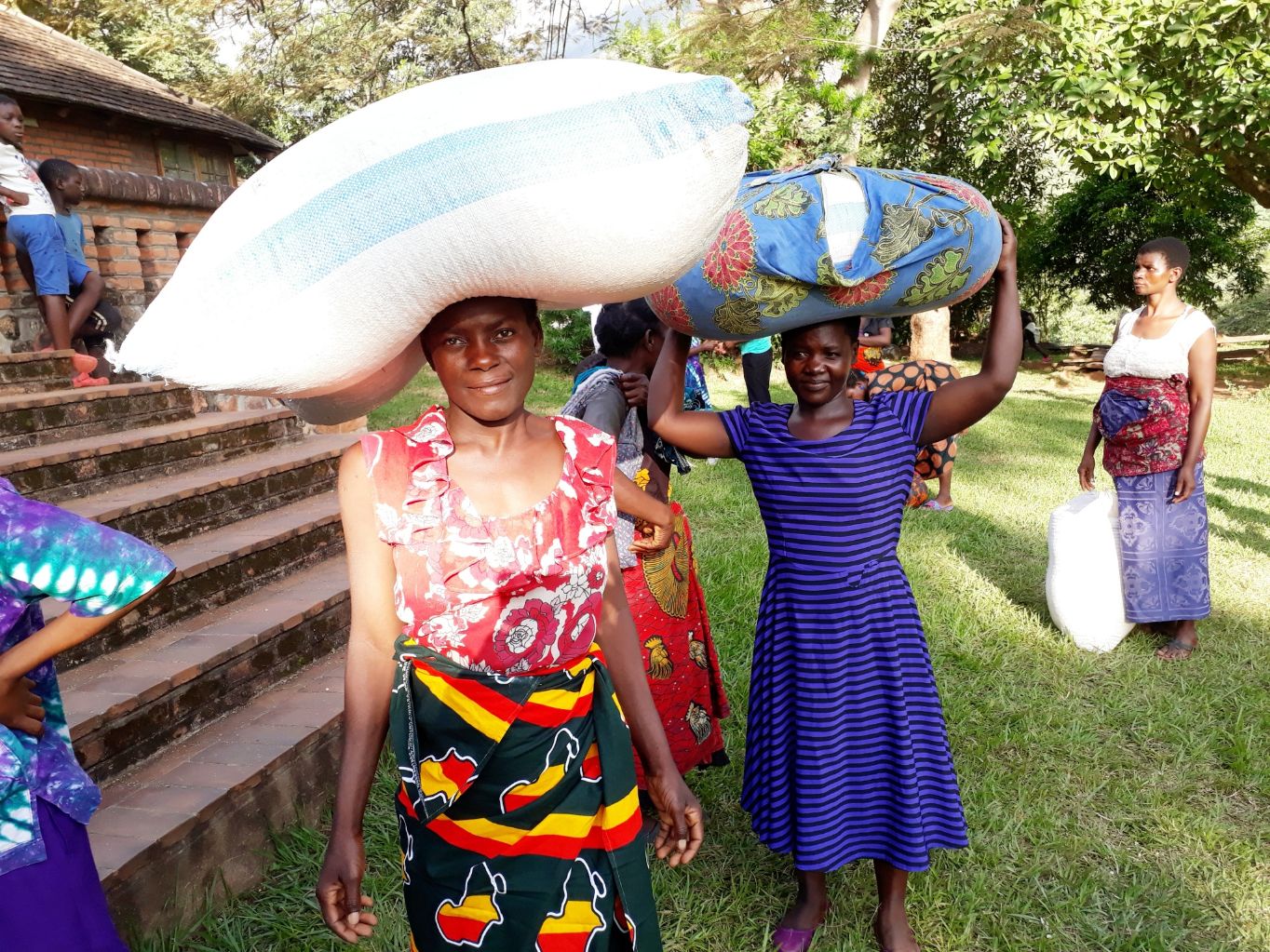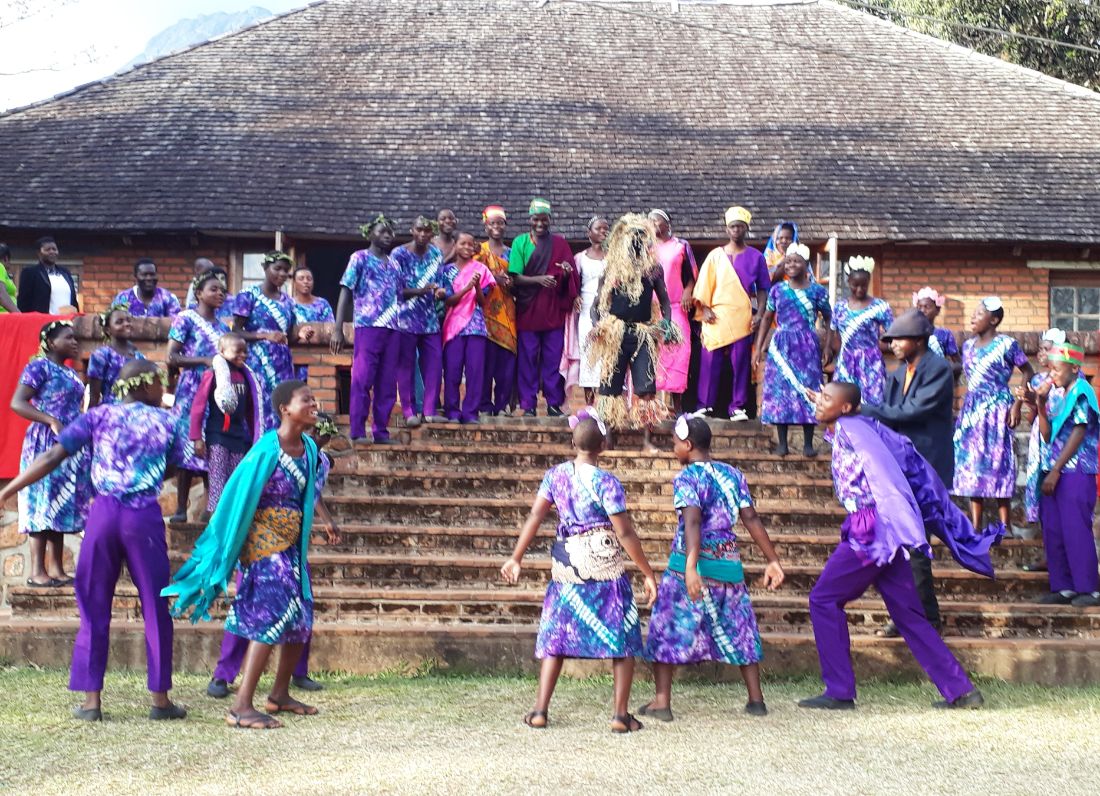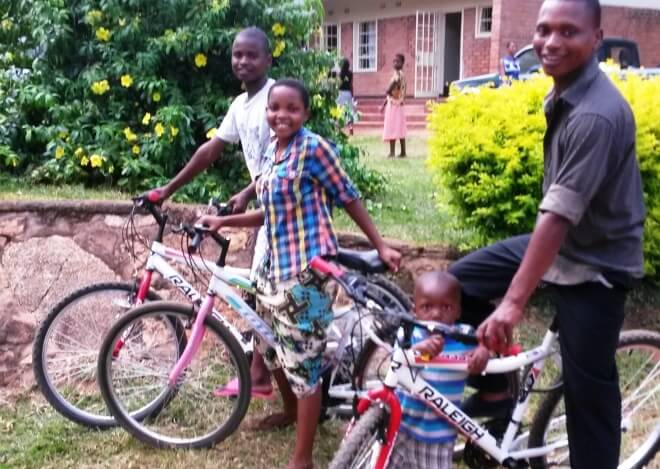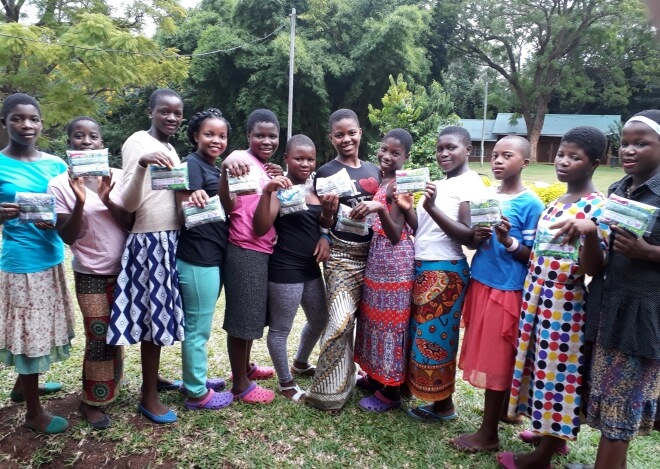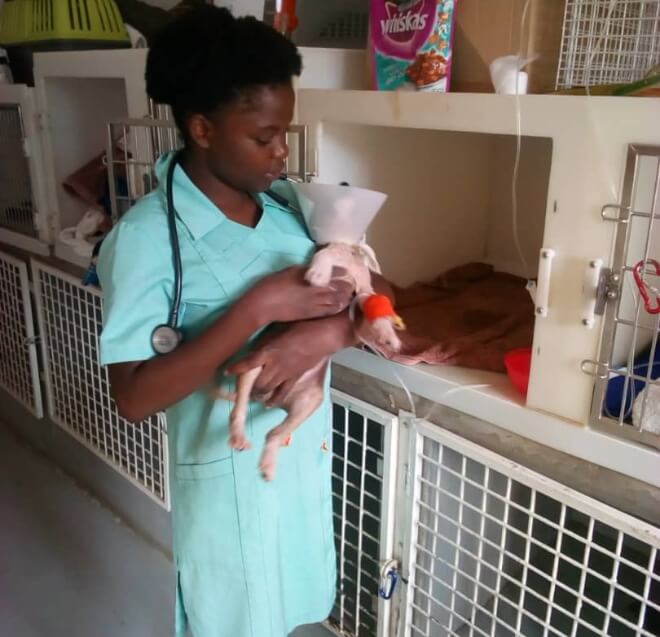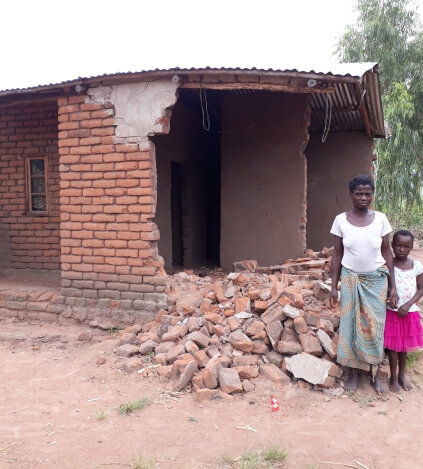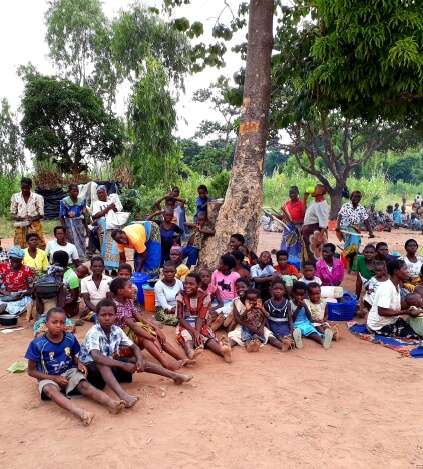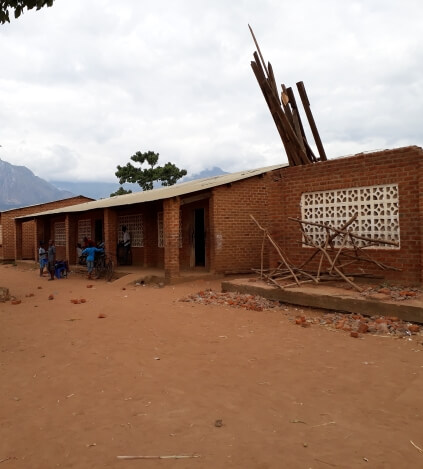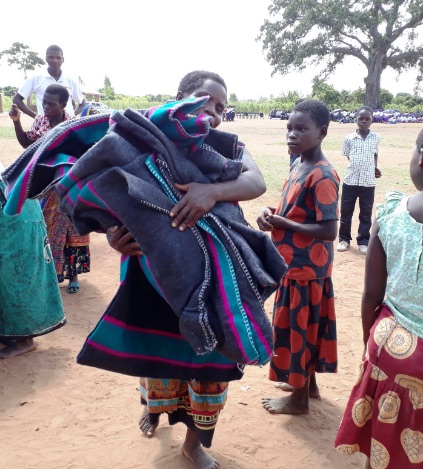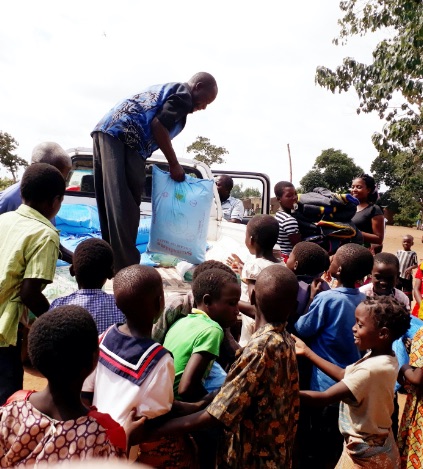How we started
Malawi is a small, beautiful country in east Africa surrounded by its three larger neighbours – Zambia, Tanzania and Mozambique. It’s one of the world’s poorest countries, with over half its population living below the poverty line and 25% living in extreme poverty. 80% of the people live in rural areas and eke out a living through subsistence farming.
Inadequate health care, the high maternal mortality rate, the AIDS pandemic and diseases such as malaria have resulted in 1 million orphaned children. Most of these children live with members of their extended family while some simply live with siblings in what are known as ‘child-headed households’. Orphaned children are among the most vulnerable and needy and for the majority there is little hope of completing their education and of breaking free of a cycle of poverty and unemployment.
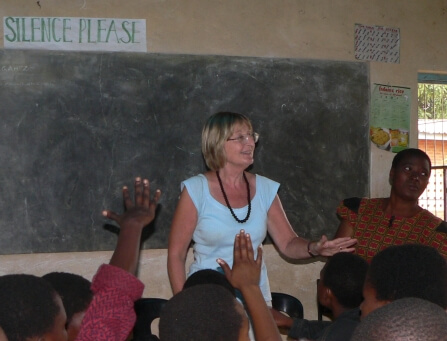
Malawi Music Fund was founded in 2006 by one of our trustees, Glenys Hughes, when she returned to Orkney after a year spent teaching in Malawi. She had been able to experience the difficulties facing Malawi’s orphans and, as a musician and teacher, to appreciate the importance of music and dance in Malawian life and culture. The visit of a Malawian choir to Orkney in 2006 was the catalyst for the launch of a fundraising appeal and so Malawi Music Fund was founded. Its aim was to use music and the arts to transform the lives of some of Malawi’s orphaned children.
We began in 2007, with a week of activities for orphaned children in Mulanje, a rural area in southern Malawi near the border with Mozambique. Glenys, together with teachers from Orkney with expertise in art and sport, travelled to Malawi, joining with Malawian colleagues to run a residential music camp for 40 children. This first week set the pattern for the future and established the group as Likhubula Children’s Choir.
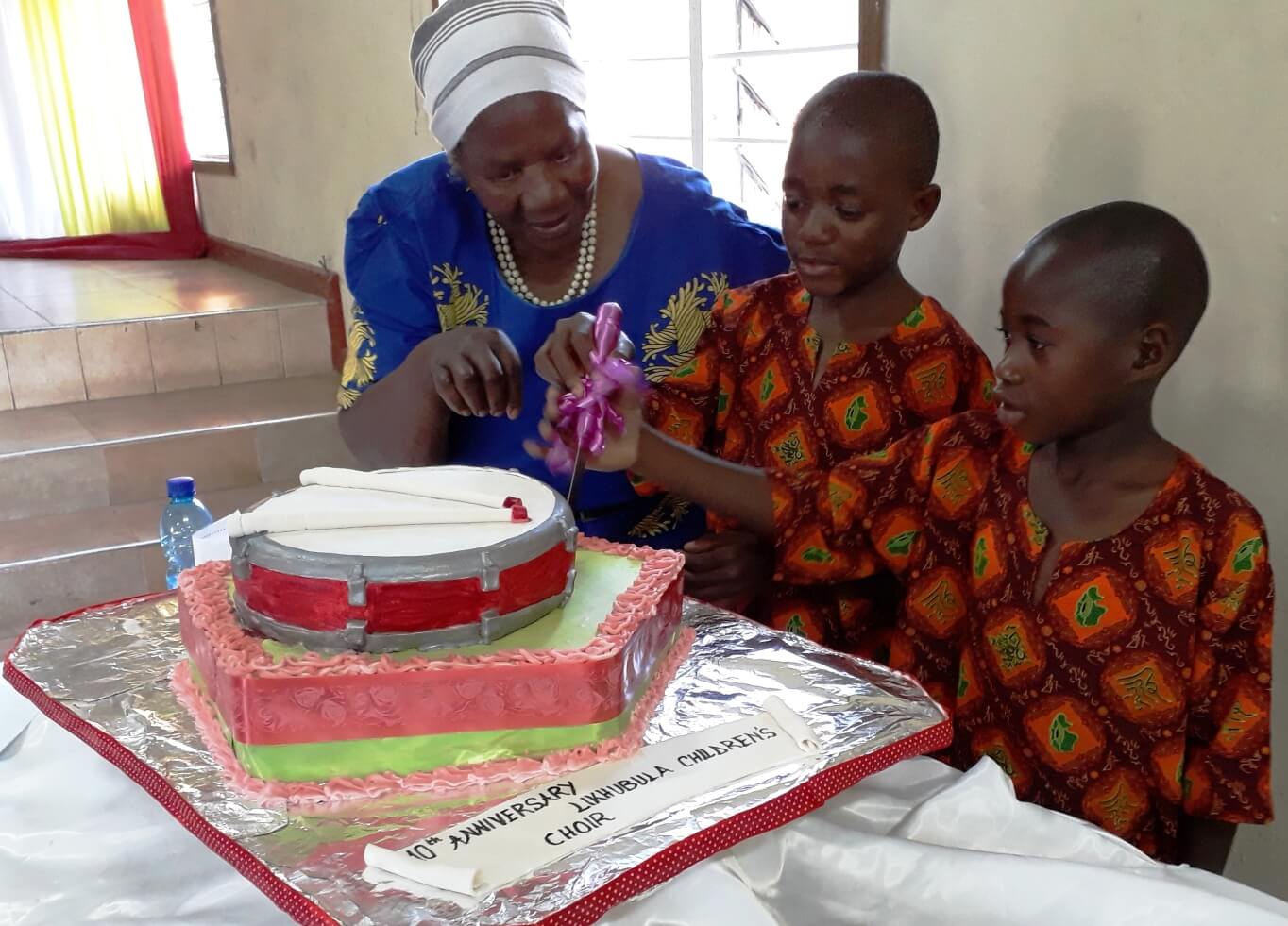 In 2017 we celebrated our 10th anniversary with a special performance attended by choirs, government ministers and local dignitaries.
In 2017 we celebrated our 10th anniversary with a special performance attended by choirs, government ministers and local dignitaries.
Our activity weeks
In partnership with a team of Malawian teachers and musicians we run regular residential activity weeks during each school holiday. Our base is Likhubula House, a church-run community centre in the foothills of Mount Mulanje, Malawi’s highest mountain. Our children, who live in the villages surrounding Mount Mulanje, are selected from five local primary schools. We consult with head teachers who recommend orphaned children between the ages of 9 and 12 who are most in need of our support.
The children who come to us enjoy structured programmes of music, dance, art, craft and sport – all designed to develop the children’s self-confidence, to foster teamwork and leadership, to improve language skills, to encourage care of the environment and to teach life skills and HIV awareness. The children are given time to form friendships and to simply ‘be a child’. We work with up to 40 children who are given comfortable beds, nutritious meals, mosquito nets and showers – none of which are available at home where most would have to sleep on the floor and wash in the river.
A local primary school teacher is part of our team and helps the children prepare for the challenging primary school leaving exam which they must pass if they are to have a chance of being selected for secondary school. In Malawian primary schools, classes of 100+ are the norm. When the children come to us they are given one-to-one attention and support and we provide them with pens, pencils and exercise books.
The group has developed into a fine children’s choir – Likbubula Children’s Choir – which performs regularly in the local area and has even performed for a group of visiting members of the Scottish Parliament. The choir performs a mix of traditional Malawian songs and dances, gospel songs, songs about the local environment and with a few English songs thrown in! It’s wonderful to see the children, in their choir uniforms, singing, dancing and drumming with such confidence, enjoyment and skill.
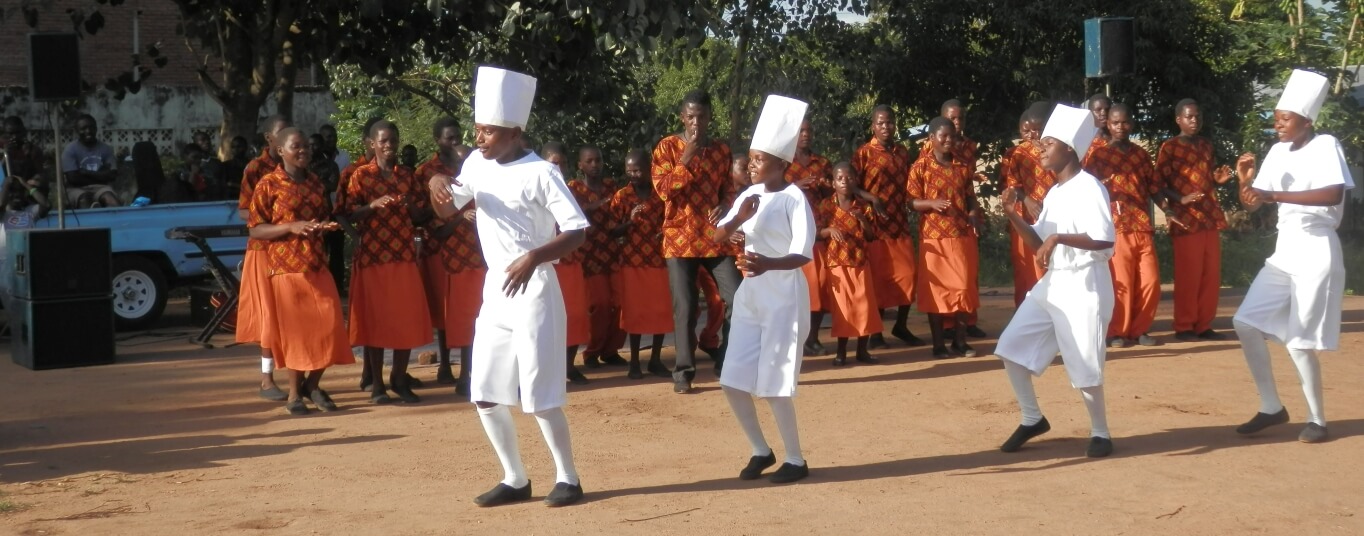
Art, craft and sport, sometimes led by tutors from the UK, are included in each week’s activities. These are always enjoyed, as large classes and lack of equipment mean that children in Malawi have few opportunities to be creative at school. Recently, teachers of dance and drama from the UK have provided exciting new experiences for the children.
When young people reach the age of seventeen they ‘graduate’ from the Choir , enabling us to recruit new children – though we keep in close touch with our ‘graduates’. And so the pool of children and families we reach continues to expand.
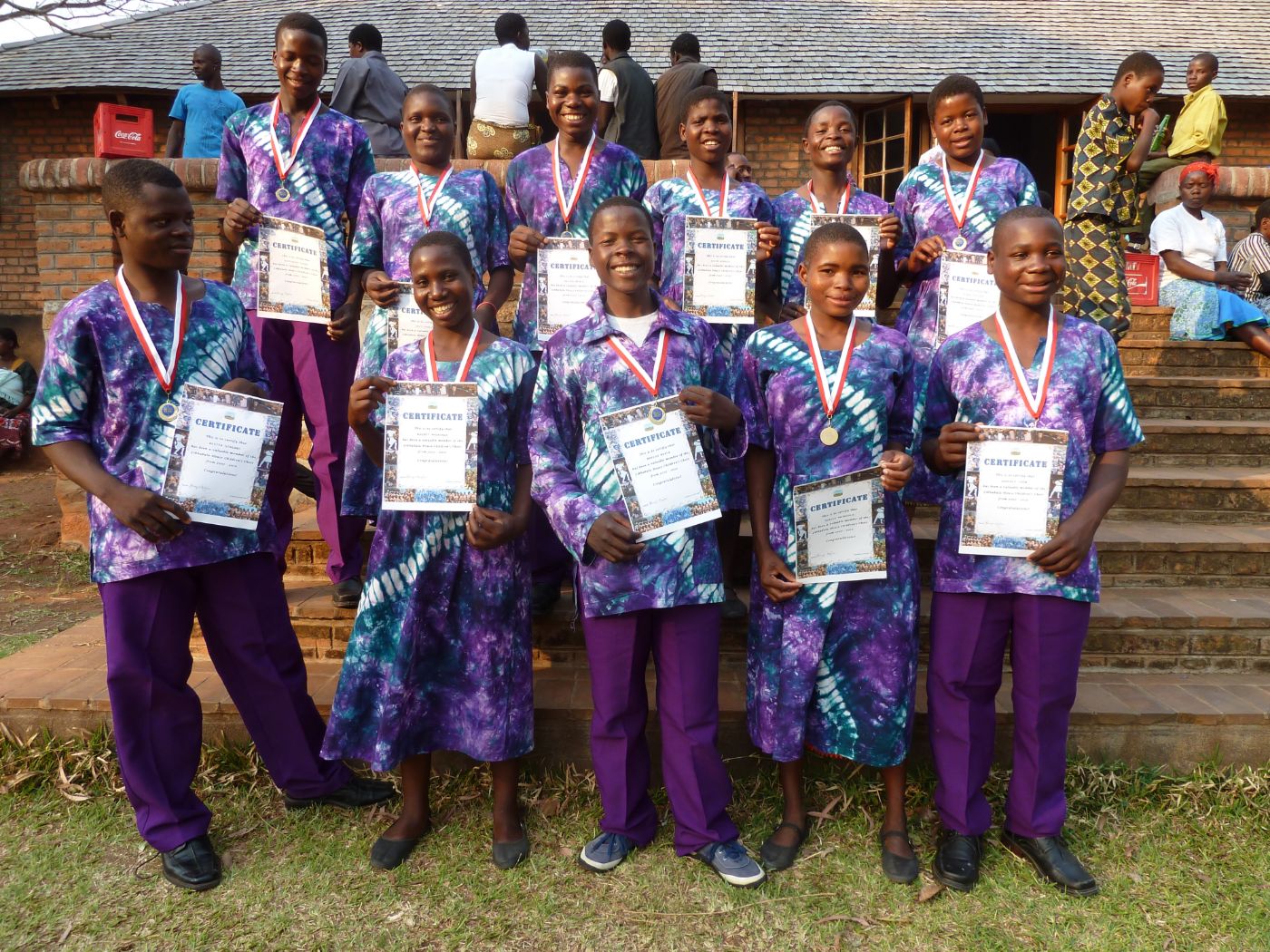
Our weeks with the children provide the guardians with valuable respite time. We meet the guardians at least twice a year when the children give their end-of-week performance; we’re able to encourage the guardians and provide occasional emergency support. Our two houseparents live in Mulanje and are able to keep in regular touch with the children, their families and their schools.
Our education bursaries
Secondary School Bursaries
Although primary education is free, secondary education is not and many children drop out of school as they know there is little hope of meeting the modest fees. So we provide bursaries to cover school fees, uniforms, shoes, exam fees and a small living allowance. (We found that some children were not attending school as they had no money to buy soap to wash their uniforms). Although, nationally, the primary school drop-out rate is high, our children are motivated to attend because they know there is a real hope of their going to secondary school.
The cost of sending a child to a government day school for one year is approximately £100 and to a government boarding school, £270.
Some children have to walk long distances to and from school, arriving home when there’s little daylight left and so unable to complete their homework before dark. (Few homes in the rural areas have electricity). So we provide bicycles to enable them to travel to and from school more quickly and in safety.
We’re especially concerned to encourage girls to complete their education – in a country where early marriage is frequently the norm. Because of a lack of affordable sanitary pads and poor facilities at school, many girls tend to stay home for several days each month, missing out on lessons, falling behind and even dropping out. Our girls were delighted to be provided with re-usable sanitary protection made by local women at a nearby training centre.
Further Education Bursaries
Young people who have been supported by us throughout primary and secondary school have now passed their MSCE (Malawi School Certificate of Secondary Education) and need to continue to some form of further education. We’ve funded vocational courses for young people in tailoring, catering, welding and IT.
We’re currently funding seven young people, including four girls, through degree or diploma courses, enabling them to achieve in ways they could previously only have dreamt of.
Veronica Lipululu gained a diploma in Animal Welfare and secured an internship as a veterinary nurse with Blantyre SPCA. We’re supporting Veronica as she studies for a B.Sc degree in Veterinary Medicine.
In May 2019 Mayeso Kachingwe obtained a B.Sc. degree in Food Technology at Lilongwe University of Agriculture and Natural Sciences. Mayeso has since been an intern with an NGO working on nutrition and food security.
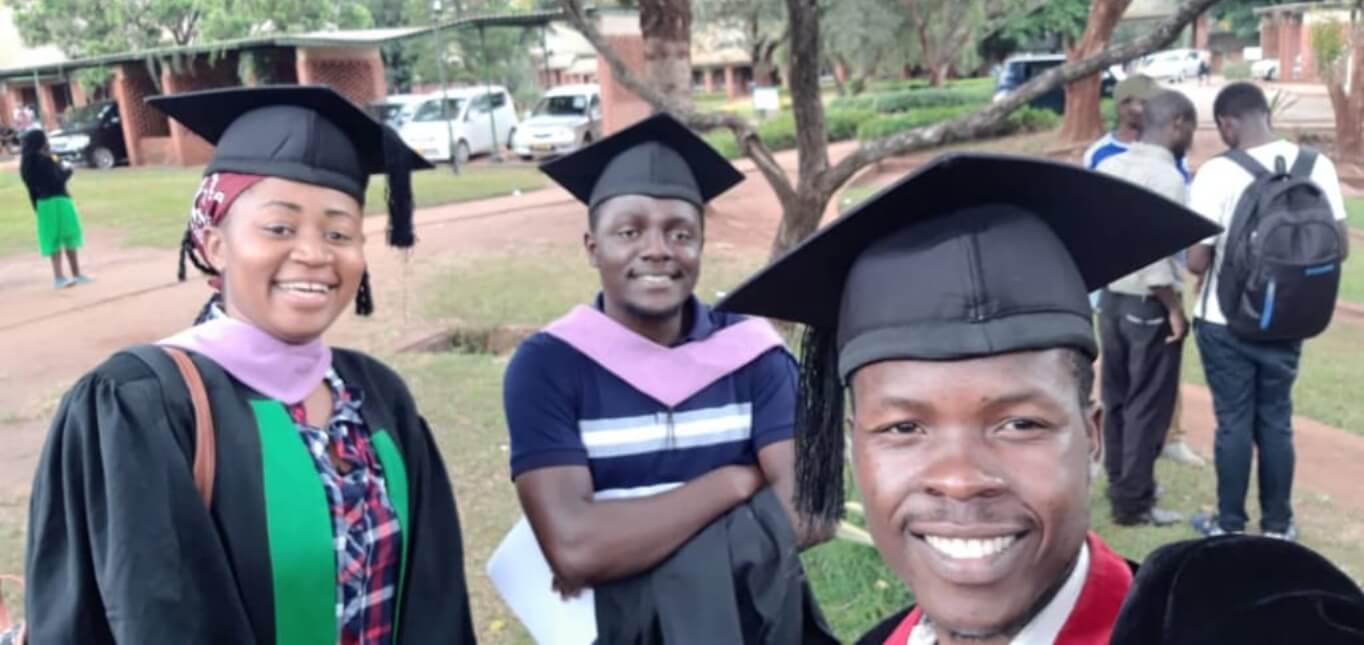
READ THE STORIES OF SOME OF THESE YOUNG PEOPLE
The proportion of young people in higher education in Malawi is among the lowest in the world. But Malawi desperately needs a skilled workforce if the country is to overcome obstacles to development and move away from a culture of dependency. The cost of fees, accommodation, food and transport for one student is approximately £1,800 a year and represents a challenge for a small charity like Malawi Music Fund. It’s a development that was not foreseen in 2006 but one that we’re committed to alongside maintaining our activity weeks and secondary school bursaries.
Supporting the community
Although our primary focus is education we’re sometimes able to respond to the need for emergency help.
In 2016 Malawi suffered severe flooding. Throughout southern Malawi homes and crops were destroyed. Our children live in simple mud brick houses, often with grass roofs, and a number of children lost their homes. Thanks to generous donors we were able to give the families small cash donations to help them rent temporary accommodation, buy maize and to start re-building their houses.
In March 2019, southern Africa was hit by a severe cyclone. In Malawi, 173 camps were set up for families who had lost homes, crops and possessions. One of the affected areas was Mulanje. A local school, Namindola Primary School, lost the roofs of two of its eight classrooms and was also being used as an emergency camp for 280 displaced families. Thanks to generous donations and the support of an Orkney church we were able to provide funds for the replacement of the roofs so that lessons no longer had to be held outside in the hot sun. For the families we provided blankets, maize flour, cooking pots, plates, mugs, salt, sugar and soap plus plastic sheeting so that the families could return to their villages and construct temporary tents to live in while they set about re-building their homes.
May I please extend my thanks to you and to the church for your good support to this school.
It has been going through many hardships because of the floods that occurred this year but you showed your kindly heart. Thanks very much.
Lawrence Mussa, head teacher, Namindola School
The families of all our children lost their maize crops in the cyclone; so each guardian was given a 50kg bag of maize flour plus a small cash gift to help in buying vegetables. At Christmas we give each child a gift of provisions for the family – items such as soap, candles, matches, cooking oil, rice and, as a luxury, orange squash.
